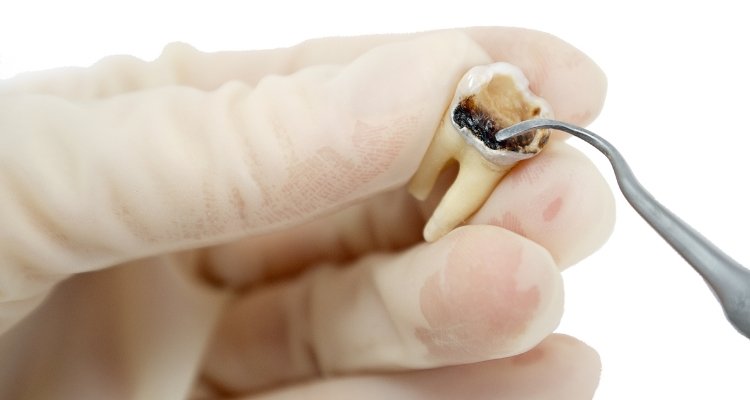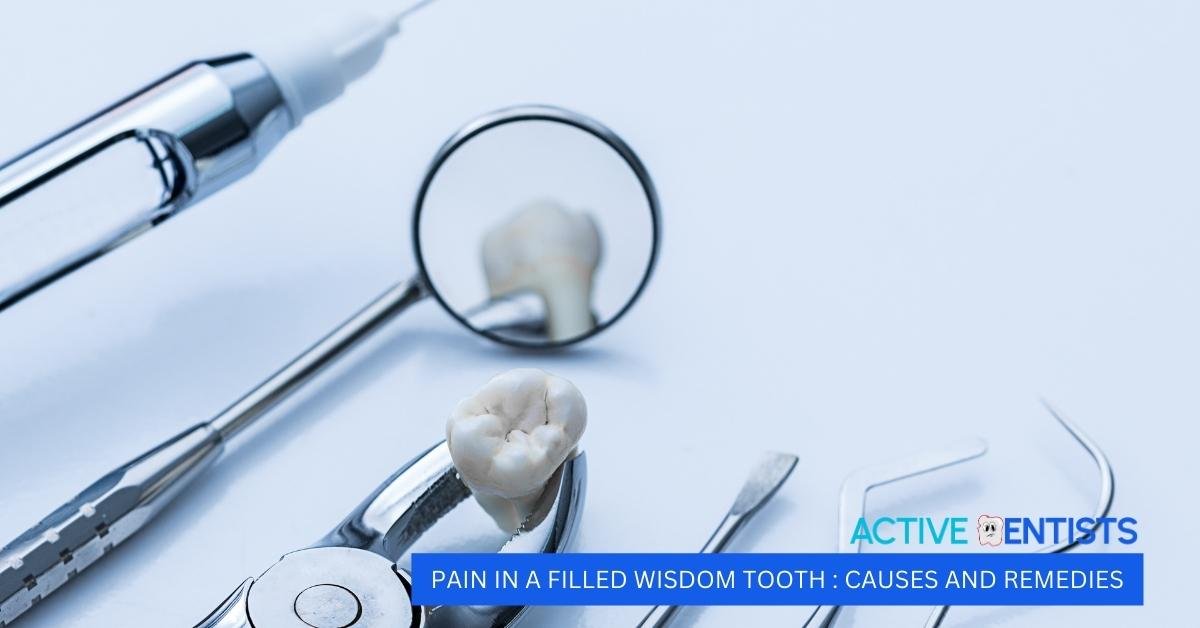Dealing with tooth pain can be incredibly uncomfortable, especially when it affects your ability to eat and drink. Suppose you have a filled wisdom tooth that is causing extreme pain every time you consume food or beverages. In that case, it’s essential to understand the potential causes and explore remedies to alleviate the discomfort. In this blog post, we will discuss the reasons behind the pain and provide some suggestions on how to find relief while waiting for a dental appointment.
Understanding the Situation:

- Possible Complications: It’s important to note that despite having a filling, a wisdom tooth can still develop issues. The pain you are experiencing may be due to various reasons such as decay beneath the filling, an infection, or gum inflammation.
- Impacted Wisdom Tooth: Wisdom teeth, also known as third molars, often emerge later in life and can cause problems if there is insufficient space in your mouth. An impacted wisdom tooth can become infected or develop cavities, leading to severe pain.
Remedies for Temporary Relief: While you should schedule a dental appointment to address the underlying issue, here are some remedies that may provide temporary relief:
- Over-the-Counter Pain Relievers: Non-prescription pain medications such as ibuprofen or acetaminophen can help manage the pain. Follow the recommended dosage instructions, and consult your pharmacist if you have any concerns.
- Saltwater Rinse: Rinse your mouth with warm saltwater (half a teaspoon of salt dissolved in 8 ounces of warm water) multiple times a day. This can help reduce inflammation and provide temporary relief.
- Cold Compress: Apply a cold pack wrapped in a thin cloth to the affected area for 15 minutes at a time. The cold temperature can help numb the pain and reduce swelling.
- Avoid Trigger Foods: Steer clear of hard, sticky, extremely hot, or cold foods and beverages that may aggravate the pain. Stick to softer foods that require minimal chewing.
Seeking Professional Help: While the above remedies can provide temporary relief, it is crucial to make an appointment with your dentist to address the underlying issue. Your dentist will perform a thorough examination, possibly taking X-rays, to determine the cause of the pain and devise an appropriate treatment plan.
The Dental Appointment: During your dental appointment, the dentist may recommend one of the following treatments based on their findings:
- Refilling or Replacing the Filling: If decay is present beneath the filling, it may need to be removed, and the cavity cleaned and refilled. In some cases, the filling may need to be entirely replaced.
- Root Canal Therapy: If the pain is due to an infection reaching the tooth’s nerve, a root canal procedure may be necessary. This involves removing the infected pulp, cleaning the canals, and sealing them.
- Wisdom Tooth Extraction: In cases of severe decay, infection, or overcrowding, the dentist may recommend extracting the affected wisdom tooth. Wisdom tooth extraction is a common procedure and can prevent further complications.
Conclusion:
Experiencing severe pain in a filled wisdom tooth can significantly impact your daily life. While you can try temporary remedies such as pain relievers, saltwater rinses, and cold compresses, it is crucial to schedule a dental appointment to address the underlying issue. Your dentist will diagnose the cause of the pain and provide appropriate treatment to alleviate your discomfort and promote oral health in the long run. Remember, professional guidance is essential for proper diagnosis and treatment, so don’t hesitate to seek dental care promptly.






